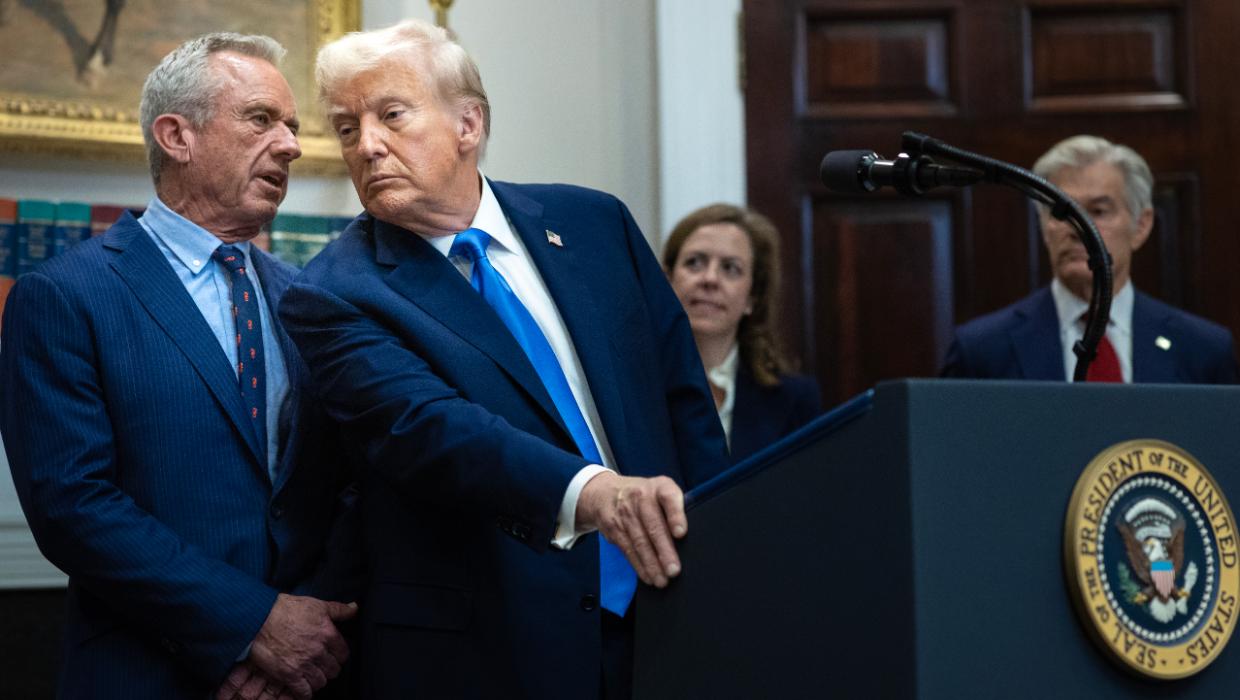Politics
Global Health Leaders Reject US Calls to Limit Acetaminophen Use

Public health leaders and organizations worldwide are voicing strong opposition to calls made by former President Donald Trump regarding the use of acetaminophen, also known as paracetamol. The controversy began when Trump suggested limiting the usage of this common pain reliever, which has raised concerns among health experts and organizations about the potential impact on public health.
The World Health Organization (WHO), along with various global health leaders, has publicly rejected these recommendations. They emphasize that acetaminophen is a widely used medication, effective for treating pain and reducing fever. The organization highlights that, when taken as directed, acetaminophen remains a safe option for millions of people.
Health experts have raised concerns that restricting access to acetaminophen could lead to unintended consequences. According to a statement from WHO, “The benefits of acetaminophen in managing pain and fever outweigh the risks when it is used appropriately.” This statement reflects the views of multiple health organizations that advocate for evidence-based practices in medicine.
In the United States, the debate continues to unfold as various health authorities work to reassure the public about the safety of acetaminophen. The Food and Drug Administration (FDA) maintains that the medication is safe when used correctly, and they have not supported any measures to limit its use.
Health leaders from around the globe are urging the public to rely on accurate information regarding medications. They stress the importance of consulting healthcare professionals before making any changes to medication usage, especially for over-the-counter drugs like acetaminophen.
The situation highlights a growing divide between political rhetoric and scientific consensus regarding public health issues. Many health experts are advocating for a more informed discussion focused on patient safety and well-being rather than political agendas. As the debate goes on, the WHO and other organizations are committed to providing clear, factual information to help guide public understanding of acetaminophen’s role in healthcare.
In summary, the global health community stands united in its support for the continued use of acetaminophen, advocating for informed, evidence-based approaches to pain management. The response to Trump’s comments underscores the importance of relying on scientific evidence rather than political statements when it comes to health-related decisions.
-

 Sports2 weeks ago
Sports2 weeks agoNetball New Zealand Stands Down Dame Noeline Taurua for Series
-

 Entertainment2 weeks ago
Entertainment2 weeks agoTributes Pour In for Lachlan Rofe, Reality Star, Dead at 47
-

 Entertainment4 weeks ago
Entertainment4 weeks agoKhloe Kardashian Embraces Innovative Stem Cell Therapy in Mexico
-

 Sports1 month ago
Sports1 month agoGaël Monfils Set to Defend ASB Classic Title in January 2026
-

 Sports2 weeks ago
Sports2 weeks agoSilver Ferns Legend Laura Langman Criticizes Team’s Attitude
-

 World2 months ago
World2 months agoPolice Arrest Multiple Individuals During Funeral for Zain Taikato-Fox
-

 Sports4 weeks ago
Sports4 weeks agoTragic Death of Shane Christie Sparks Calls for Player Safety
-

 Entertainment3 weeks ago
Entertainment3 weeks agoSydney Sweeney Launches Jimmy Choo Campaign Amid Controversy
-

 Health6 days ago
Health6 days agoBella Hadid Hospitalized in Ongoing Battle Against Lyme Disease
-

 Health3 weeks ago
Health3 weeks agoDuchess of Kent Passes Away at 92, Leaving Legacy of Service
-

 Top Stories2 months ago
Top Stories2 months agoFormer Superman Star Dean Cain Joins U.S. Immigration Agency
-

 Sports2 months ago
Sports2 months agoRichie Mo’unga’s All Blacks Return Faces Eligibility Hurdles




















